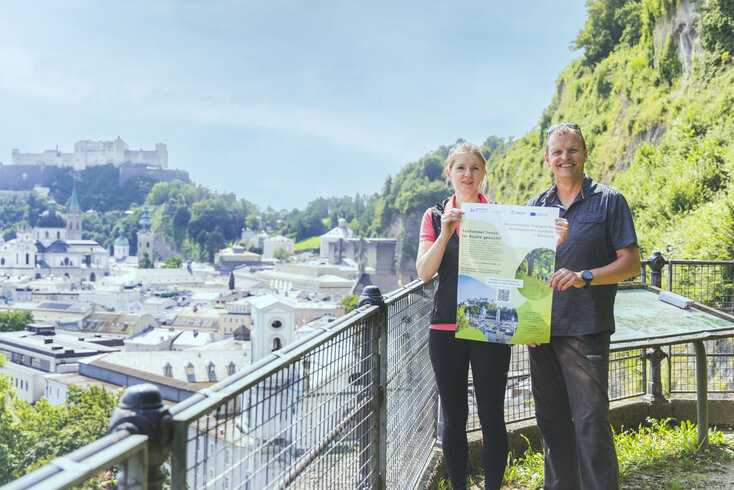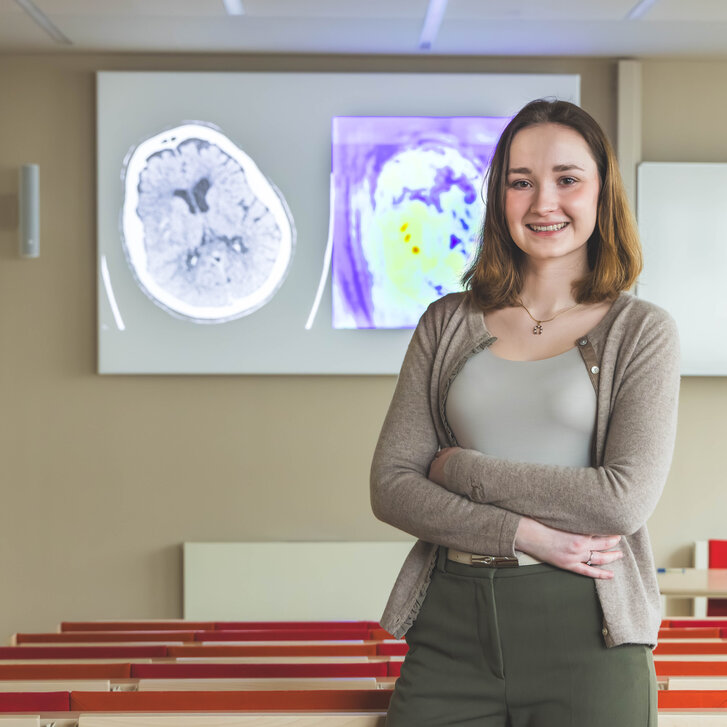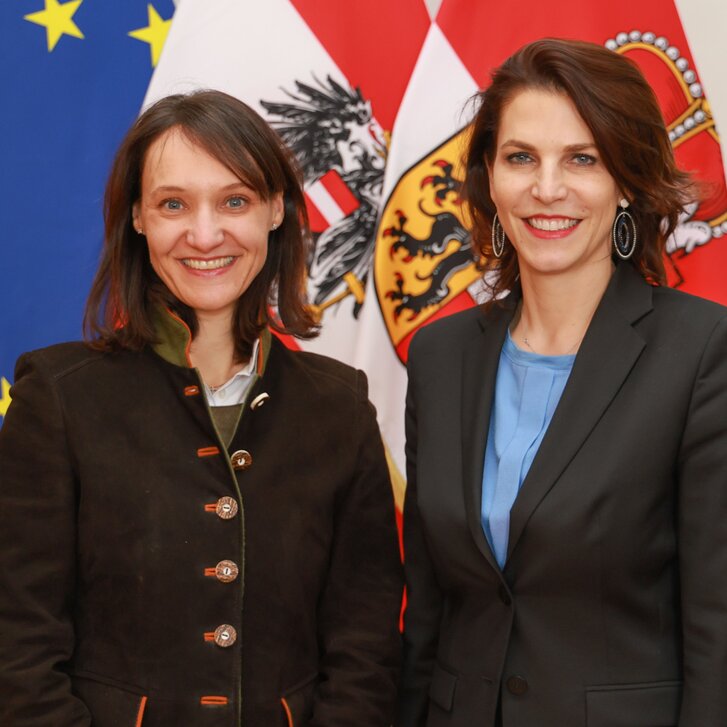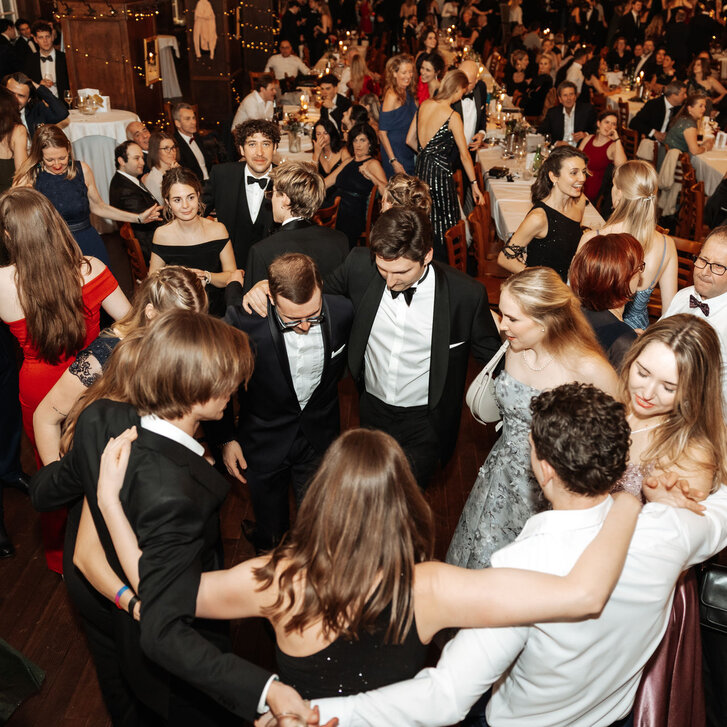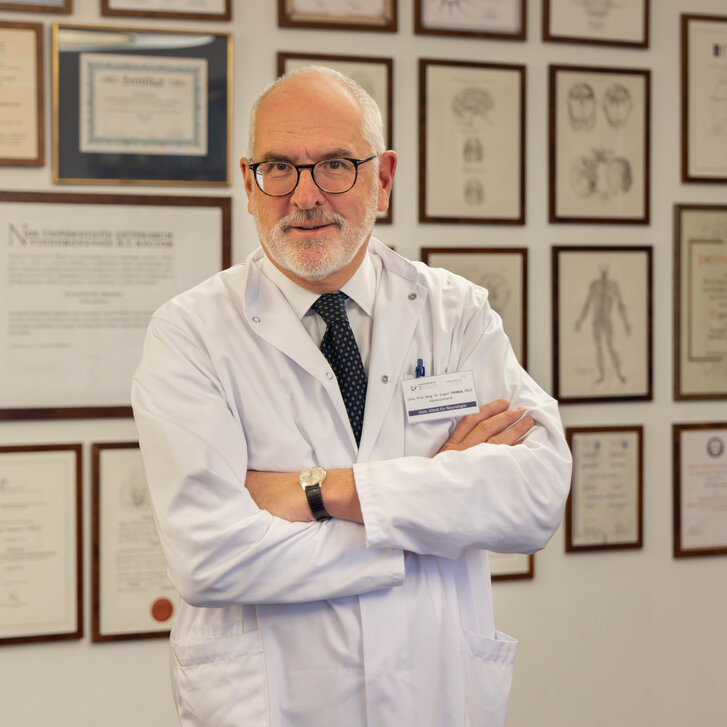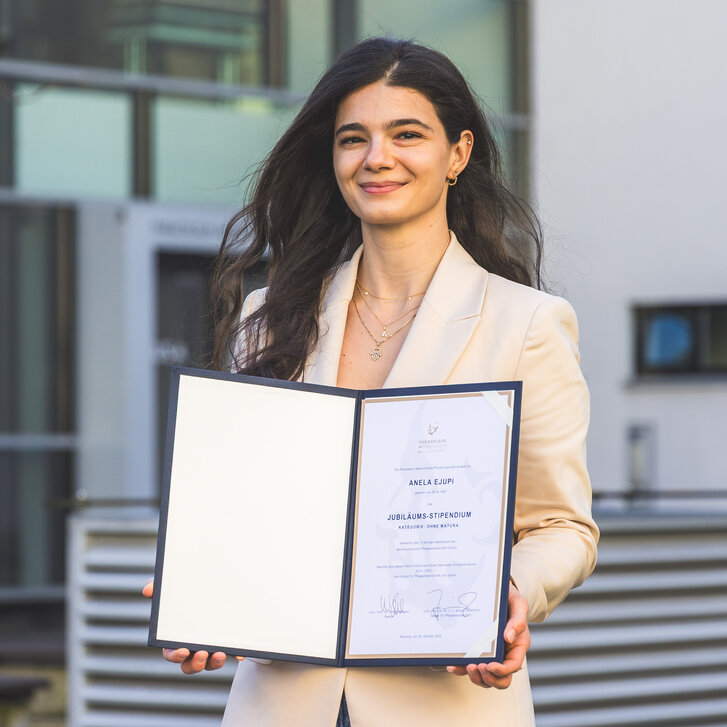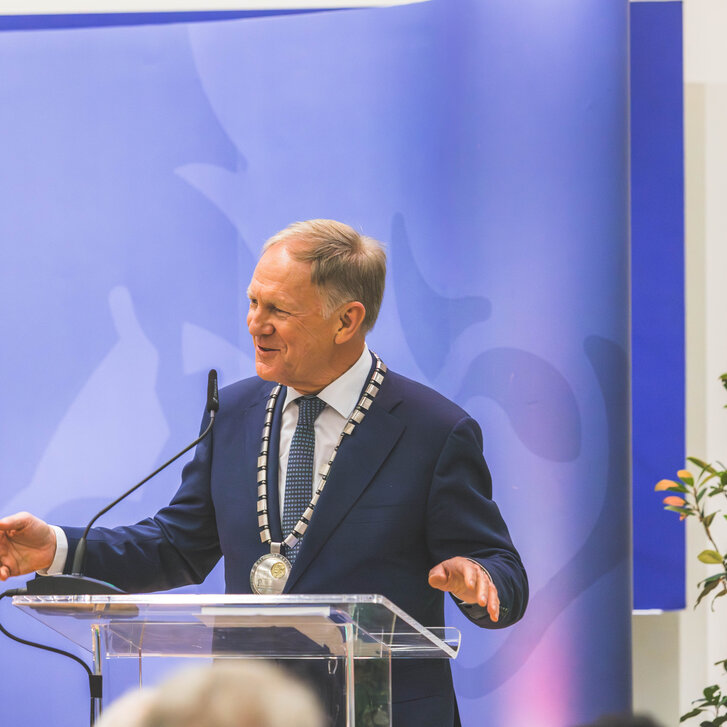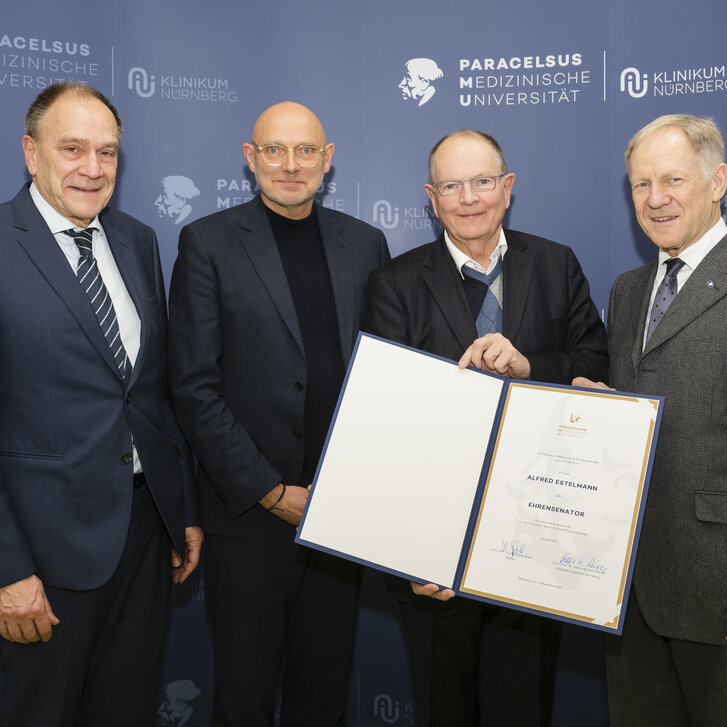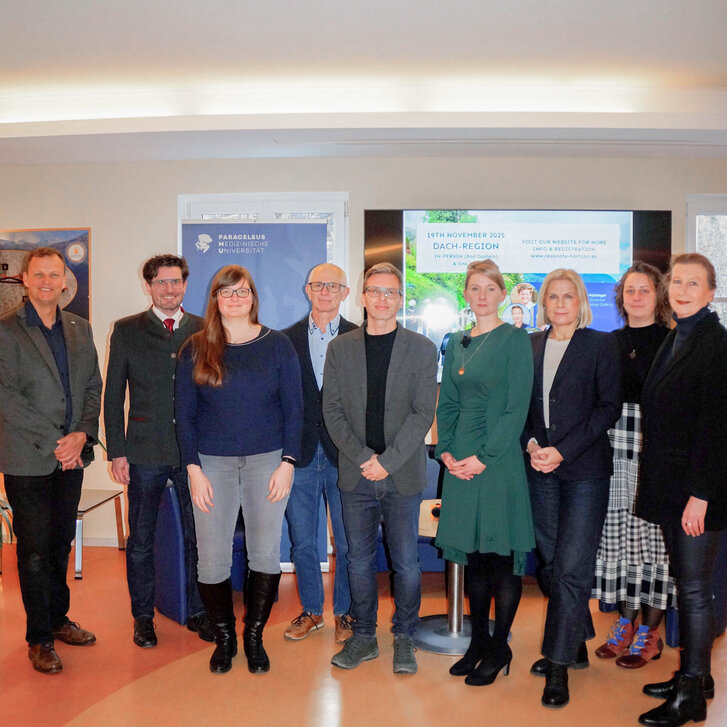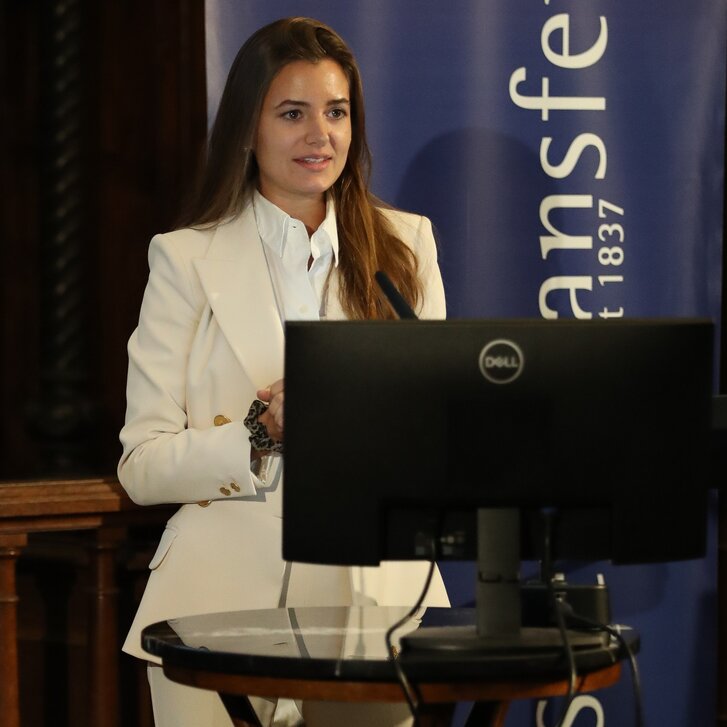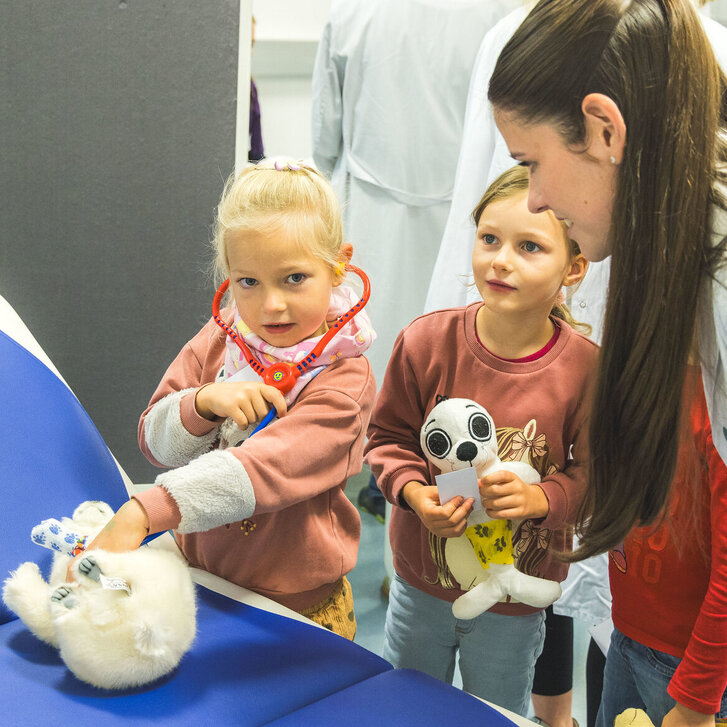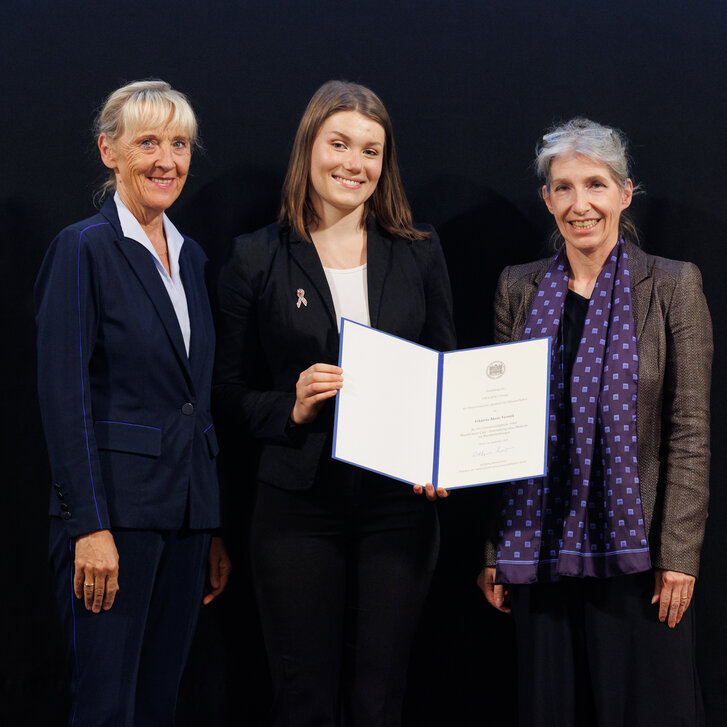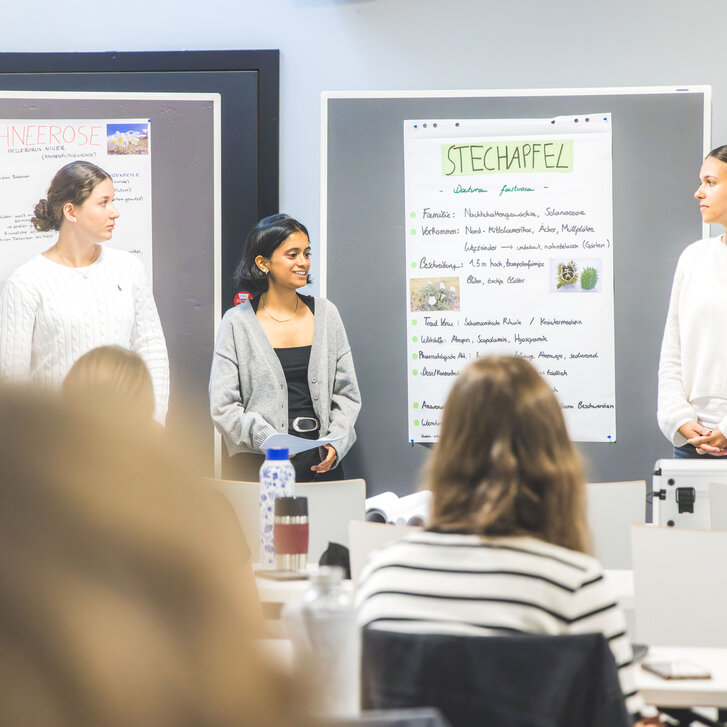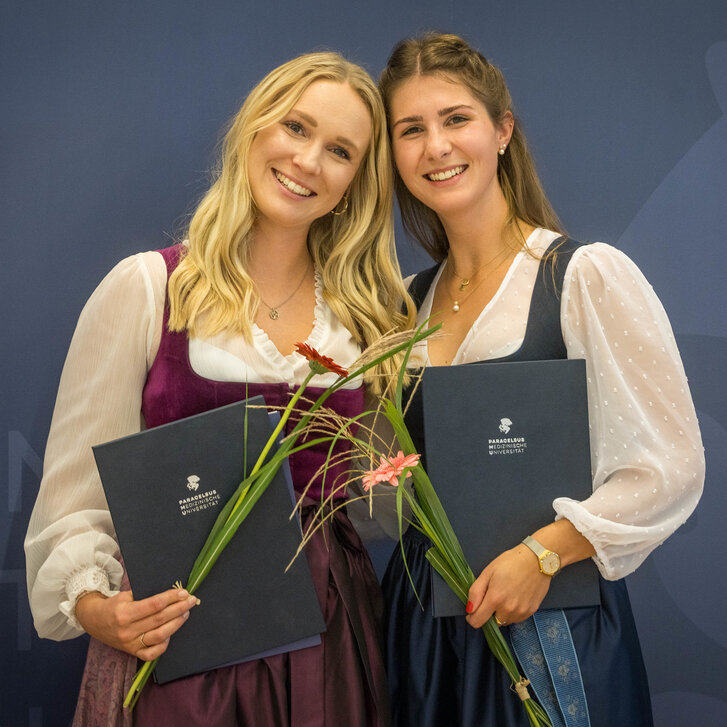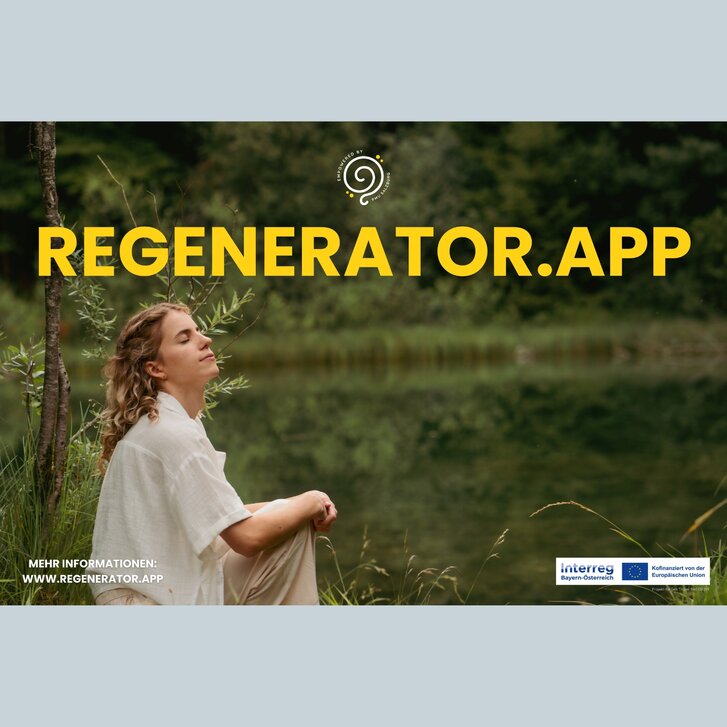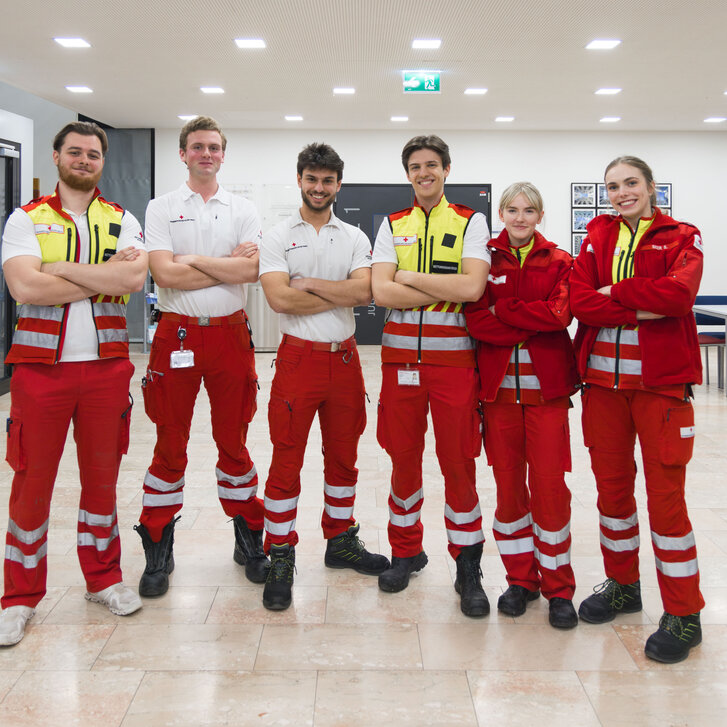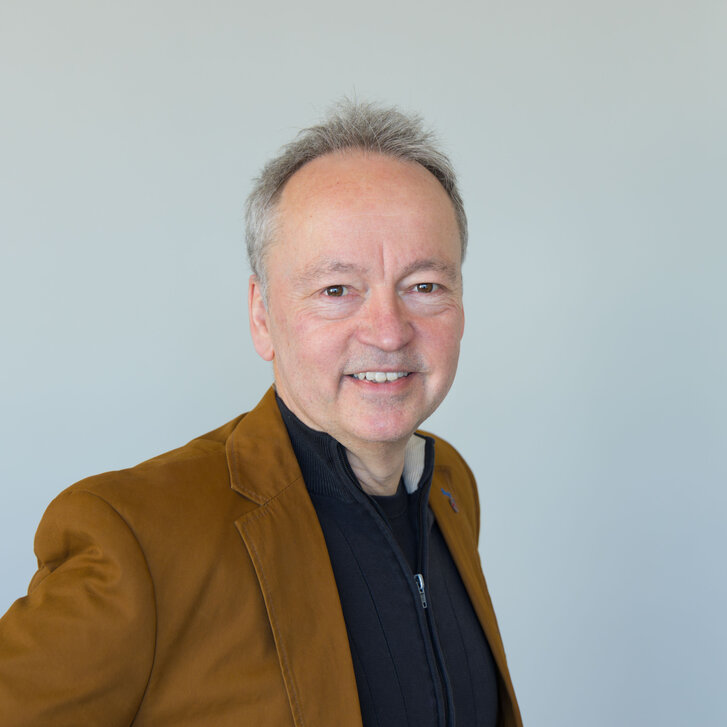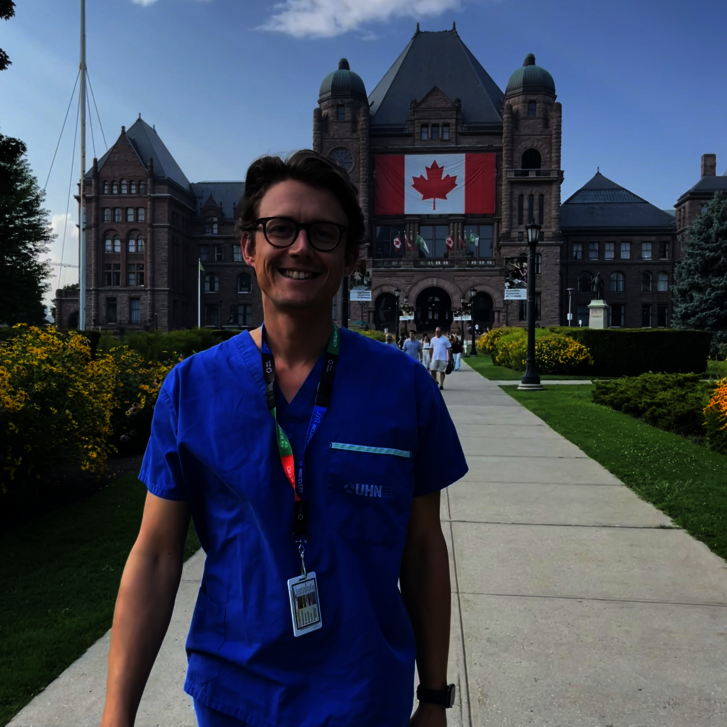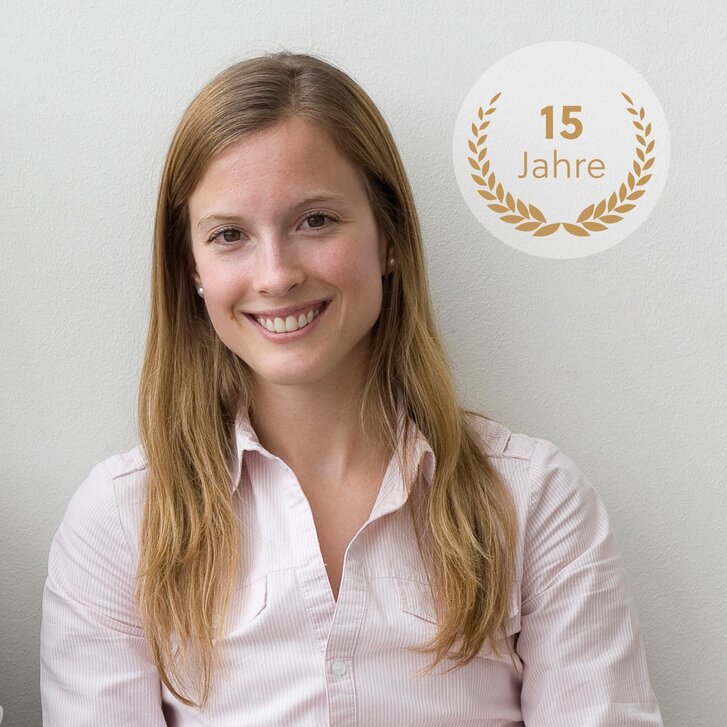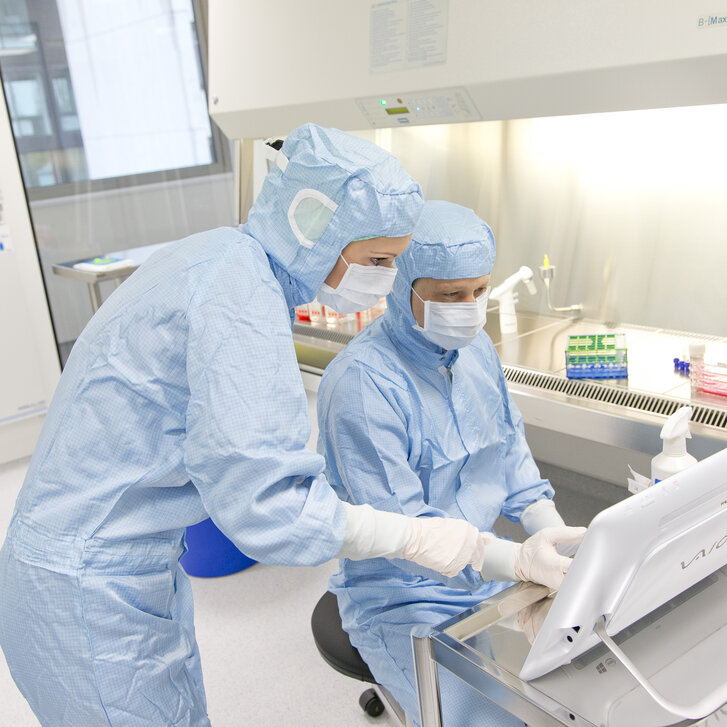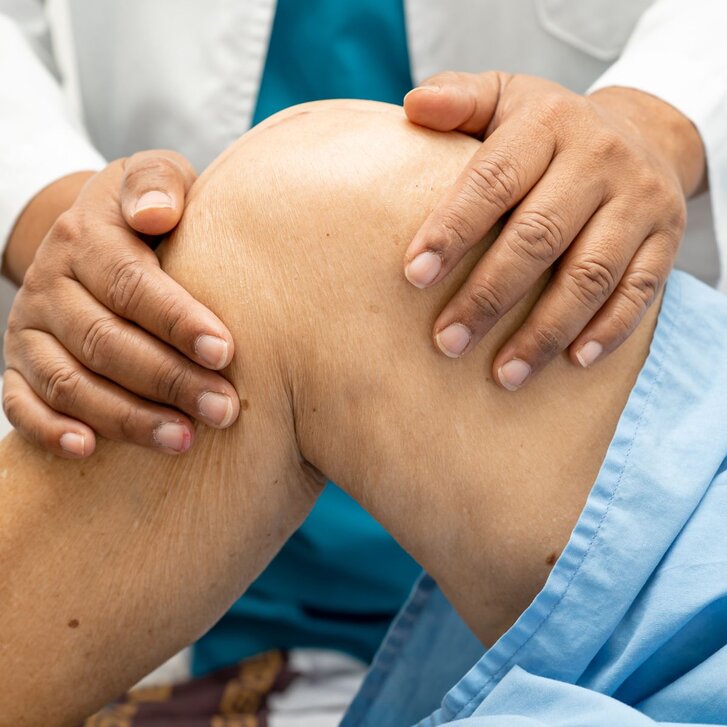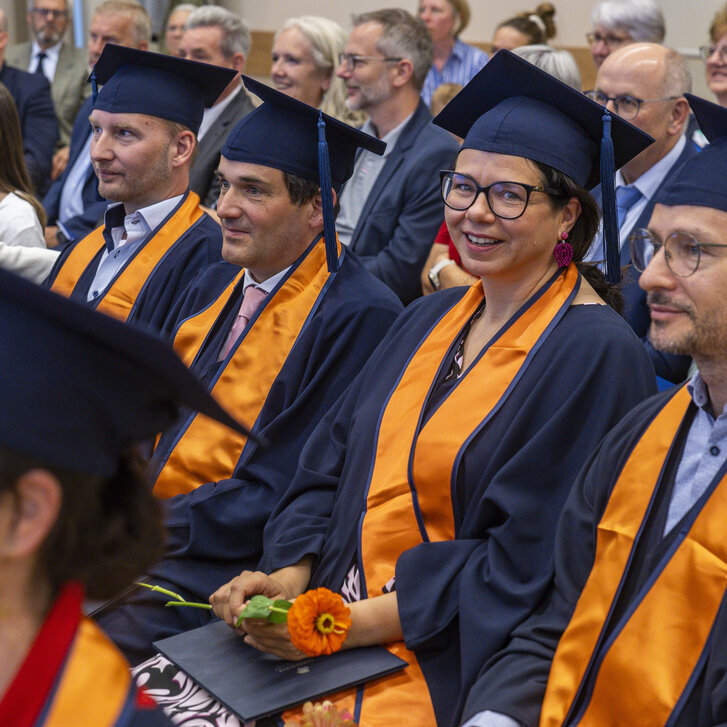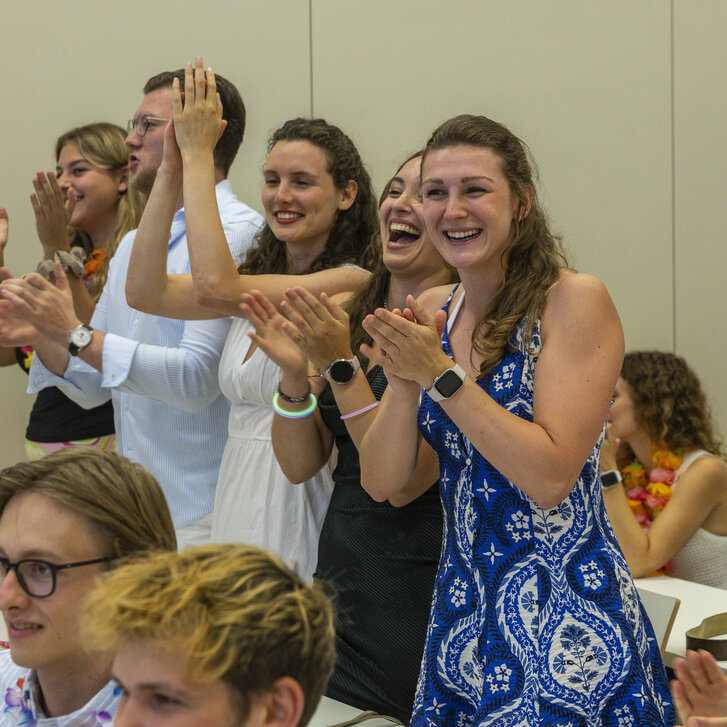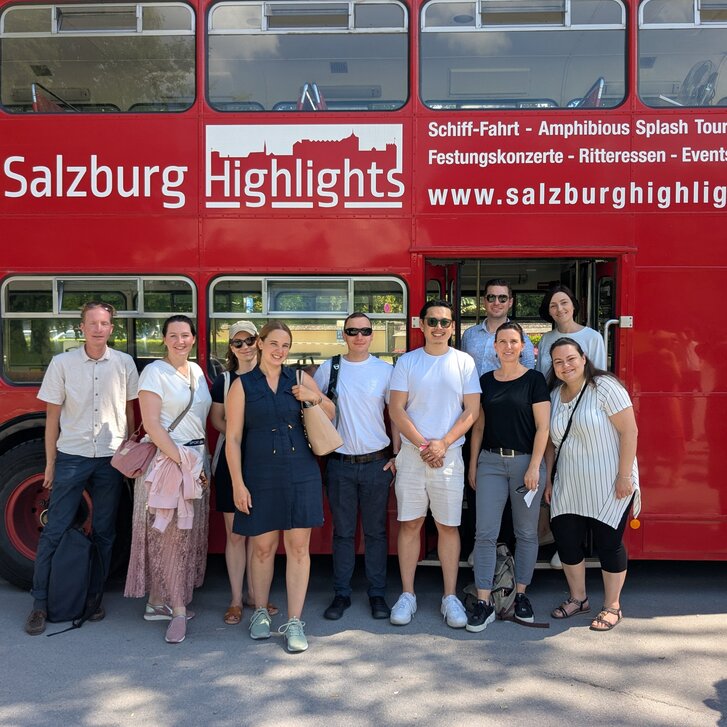PMU investigates the effect of nature-based intervention on people with obesity and physical inactivity on Salzburg's city hills
Starting in mid-September, the Paracelsus Medical Private University (PMU) will be sending individuals with metabolic syndrome on guided hikes in Salzburg's city mountains as part of a clinical study. The study will explore how a specially designed program combining hiking and mindfulness training affects participants’ health and quality of life. The study is still recruiting participants and is supported by the City of Salzburg, Naturfreunde, and the Österreichische Gesundheitskasse (ÖGK). In the long term, PMU aims to establish a "Resilience Hub" in Salzburg, which will unite all key stakeholders in nature-based community health promotion.
(SALZBURG, 30.07.2024) – Metabolic syndrome (MetS) is a growing health issue that now affects about a quarter of the Austrian population, often without them knowing it. This syndrome refers to a cluster of risk factors, including obesity, high blood pressure, elevated blood sugar, and abnormal cholesterol levels, which together significantly increase the risk of cardiovascular diseases, stroke, Type II diabetes, and premature death. Physical inactivity and stress are major contributing factors. "The high prevalence of metabolic syndrome shows the need for accessible, resilience-boosting public health initiatives to tackle this widespread lifestyle-related condition," explains Associate Professor Arnulf Hartl, head of the Institute for Eco-Medicine at PMU in Salzburg.
"Research indicates that spending time in nature and engaging in outdoor physical activity can have long-lasting positive effects on health and well-being. Compared to indoor exercise, outdoor activities offer additional psychophysiological and social benefits, which can be especially advantageous for people with sedentary lifestyles, metabolic syndrome, and limited exposure to nature," adds Hartl. As part of the Horizon Europe Project "RESONATE," Hartl and his team have developed a 10-week nature-based program specifically for this group, which includes gentle hikes and mindfulness training in Salzburg's city mountains.
The impact of this intervention on biopsychosocial resilience will be studied in a clinical trial ("NATURE-MET-SALZBURG") conducted in collaboration with the Department for Internal Medicine I at the University Hospital Salzburg. Hartl explains: "We will measure participants' health based on their biopsychosocial resilience—a key factor in mental, physical, and social well-being. This concept not only includes psychological factors such as self-efficacy but also biological aspects like improved immune function and social factors such as interpersonal relationships."
Study Begins in September, Participants Needed
A total of 140 individuals with metabolic syndrome, aged between 40 and 65, will be enrolled in the study. Participants will be divided into two groups: an intervention group (the "Nature Group") and a control group. The control group will be assessed at three points in time, concurrently with the intervention group, and will have the opportunity to participate in the nature-based therapy after the completion of all study assessments. The program will be conducted in two consecutive rounds, one in Fall 2024 and the other in Spring 2025.
"Our goal is to establish a scientific basis for nature-based therapies, which could then be offered through public health insurance providers," says Hartl. He highlights the ideal setting of the city of Salzburg: "Salzburg is uniquely positioned to create nature-based prevention programs for its residents. Few places in Europe offer such easily accessible green city mountains with extensive hiking trails that can be used for public health promotion."
Support from the city, ÖGK, and Naturfreunde
The study has received a positive response from both the City of Salzburg and the Österreichische Gesundheitskasse (ÖGK) in Salzburg. "We fully support the creation of low-barrier, nature-based health programs for our citizens, and we will inform all city employees about the study. This project aligns perfectly with our ‘Active City’ initiative, which aims to expand and promote public spaces for physical activity,” says Mayor Bernhard Auinger. "For the ÖGK, this project is also of particular importance, as it ties in perfectly with our current priorities. Personal responsibility and physical activity are key pillars of a healthy lifestyle," confirms ÖGK Chairman Thom Kinberger. Additionally, the study is supported by Naturfreunde Salzburg, an organization that has been offering nature-based programs for Salzburg residents for many years.
Parallel studies will be conducted in Barcelona and Padua to compare the effects of different natural environments. While Salzburg will focus on its alpine city mountains, Padua will emphasize urban parks, and Barcelona will study the impact of its coastal urban areas.
PMU is still recruiting participants for the clinical study in Salzburg. Participation is free of charge. For more information and to register, visit:www.pmu.ac.at/ecomedicine
Networking: Establishing a Resilience Hub in Salzburg
As part of the RESONATE project and building on the findings of the clinical study, a "Resilience Hub" is planned for Salzburg. This hub will connect all relevant stakeholders and initiatives focused on nature-based programs aimed at promoting physical, mental, and social health. The first step toward establishing this Resilience Hub will be a mini-symposium at the PMU in Fall 2024, organized in collaboration with the City of Salzburg. At this event, existing initiatives will be presented, and a foundation for long-term networking and collaboration will be established.
---
Pictured: On the Mönchsberg in Salzburg: Study leader Christina Pichler, BA MSc, and Associate Professor Arnulf Hartl, head of the Institute for Eco-Medicine at Paracelsus Medical Private University (PMU) in Salzburg. // Photo: PMU / Paulina Mittermeier
---
Horizon Europe Projekt RESONATE | https://resonate-horizon.eu/
In recent years, public interest in nature-based therapies (NbTs) for promoting physical, mental, and social health has significantly increased. Studies show that spending time in nature, especially when combined with physical activity, can have a wide range of positive effects on health and well-being. These benefits include reduced risks of cardiovascular disease, stroke, and diabetes, improvements in subjective well-being and resilience, and even lower mortality rates. Despite the great potential of NbTs, relatively little is known about: a) the specific mechanisms linking nature and health, b) their ecological, economic, and social impacts, and c) the current barriers and requirements for further integrating nature-based programs into existing healthcare and social systems in Europe, such as through social prescribing.
This is where the Horizon Europe Project RESONATE comes in. Led by environmental psychologist Dr. Mat White from the University of Vienna, the project brings together a consortium of internationally leading experts and organizations from research, practice, policy, and innovation in NbT. The project also includes stakeholders from health, ecology, economy, and society to jointly drive the development and provision of nature-based therapies within the healthcare and social sectors in Europe.
As part of the project, a comprehensive global analysis of NbTs will be conducted, along with nine scientific studies. These studies will examine the effects of nature-based interventions on various population groups in prevention, therapy, and rehabilitation. In addition, data on the ecological, social, and economic aspects of these interventions will be collected. The project also plans to establish "Resilience Hubs" in three cities—Salzburg, Padua, and Barcelona. These hubs will connect all stakeholders involved in nature-based therapies for health promotion and prevention, with the aim of further integrating these therapies into the healthcare and social sectors, potentially through initiatives such as social prescribing.



